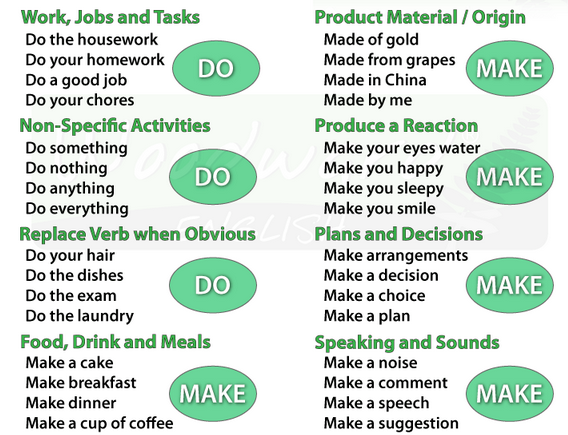wear 동사와 wash 동사
wear 동사와 wash 동사는 한단어로 우리말 여러가지를 표현하는 동사입니다.
어떤 단어는 영어로 세분화하여 표현하기도 하는데 어떤 단어는 한 단어로 이것 저것 다 표현을 하기도 합니다.
우리말과는 정반대로 이뤄지는 경우가 있으니 원어민의 사고방식에 맞게 이해를 해야겠죠.

영어는 몸에 걸치는 모든 걸 wear 로 표현합니다.
모자를 쓰건, 스카프(목도리)를 두르건, 안경을 착용하건, 목걸이를 하던 전부 wear 동사를 사용합니다.
아무것도 입지 않은 나체 위에 뭔가 걸치는 걸 표현할 때 wear 동사를 사용한다고 이해하면 됩니다.



What do you wear at work?
What do you wear at night?
What do you wear when you ski?
What do you wear when you go hiking?
I'm wearing a hat.
I'm wearing a scarf.
I'm wearing glasses.
I'm wearing the earings.
I wear only base make-up.(난 기초 화장만 해)
I'm not wearing make-up. (나 생얼이야)
I wear a different perfume each week. (난 매주 다른 향수를 뿌려)
She's wearing an expensive necklace. (그 여자는 비싼 목걸이를 하고 있어)
I don't wear a tie at work. (난 근무중에는 넥타이를 매지 않아)
I'm wearing a bra.
I'm wearing a ring.
Every woman loves to wear a diamond ring. (모든 여자는 다이아몬드 반지 끼는 걸 좋아하지)
I'm wearing socks.
I'm wearing the shoes.
I don't want to wear uniforms. (난 교복을 입고 싶지 않아)
I'm wearing my Sunday best. (오늘 최고로 차려입고 왔어)
wash 동사는 '물로 깨끗이 씻다' 라는 뜻입니다.
wash the dishes (접시들을 물로 씻다 → 설거지 하다)
wash my hair (내 머리는 물로 씻다 →머리를 감다)
wash my face (내 얼굴을 물로 씻다 → 세수하다)
wash my hands (내 손을 물로 씻다 → 손을 씻다)
wash my feet (내 발을 물로 씻다 → 발을 씻다)
wash the clothes (옷들을 물로 씻다 → 빨래하다)
wash my car (내 차를 물로 씻다 → 세차하다)
I'm tied up with household chores. (난 집안일에 매여있어)
I hate to do the dishes. (난 설거지 하는게 정말 싫어)
Can you help me do the dishes? (설거지 하는 것 좀 도와줄래?)
Did you wash your hands properly after you used the toilet? (너 손 씻었니? 화장실 이용하고 나서)
My daughter is age 10. She doesn't want to wash her hair. (내 딸은 10살인데 머리 감고 싶어하질 않아)His hair is greasy. (그의 머리는 떡이 졌다)

I hand-wash my underwear. (난 속옷은 손빨래를 해)
I need to wash this shirt. (이 셔츠는 세탁해야 돼)
My sweater shrank in the wash. (내 스웨터를 물에 빨았더니 줄어들었어)
I had to wash the clothes by hand. (그 옷은 손빨래로 빨아야 했어)
I'm a jinx when it comes to washing my car. (난 세차 징크스가 있어) * jinx : 불행을 몰고 다니는 사람
Every time I wash my car, it rains the next day. (세차를 하고 나면 그 다음날 비가 와)
This sweater is easy to wash. (이 스웨터는 세탁하기 쉬워)
I put my socks in the washing machine. (세탁기에 양말 넣어 놓았어)

































